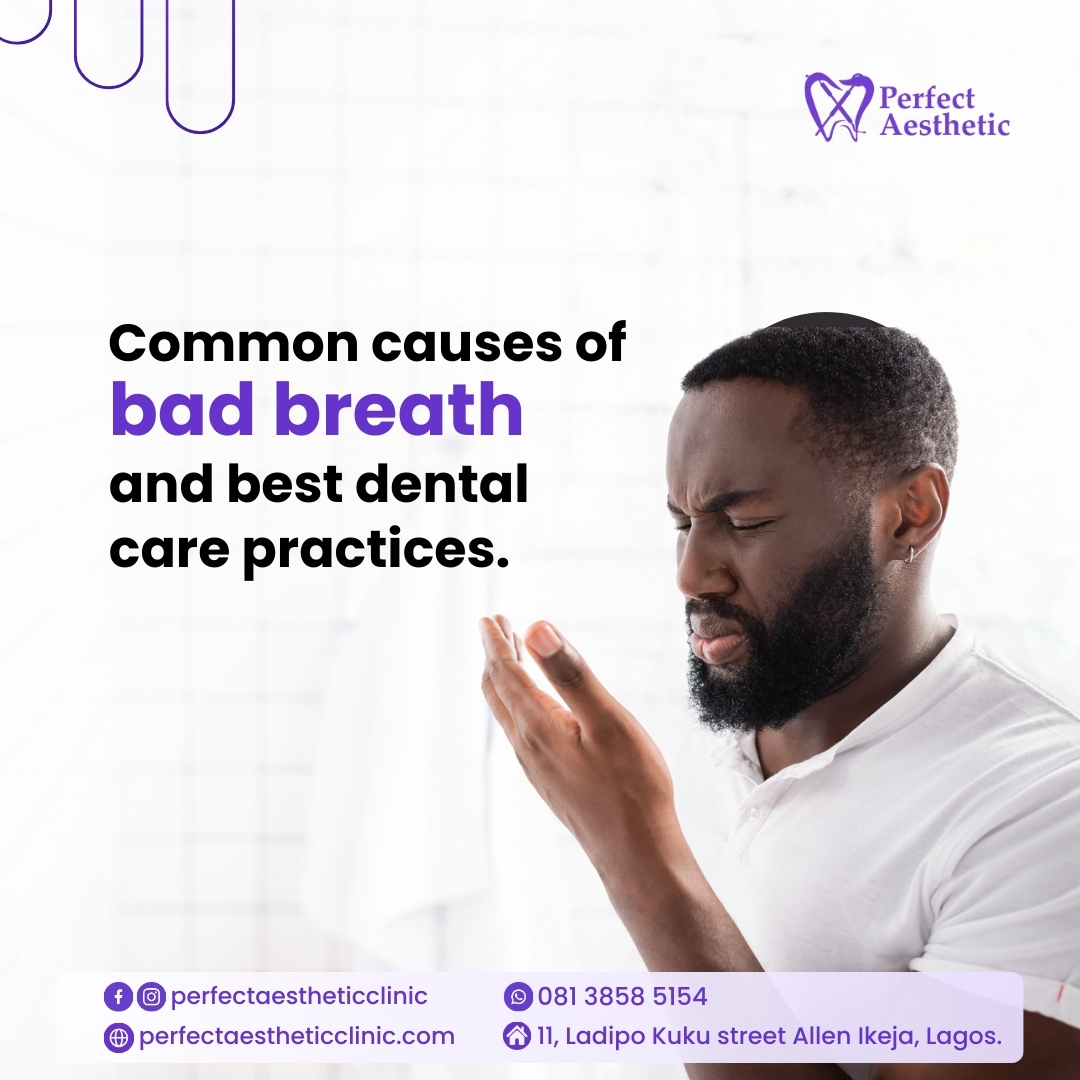Struggling with Bad Breath? Here’s What Causes It and the Best Practices to Keep Your Mouth Fresh
Bad breath, or halitosis, is a common concern that affects millions worldwide, and it can be an embarrassing issue to deal with daily. Fortunately, understanding the causes of bad breath and incorporating some straightforward dental care practices can make a huge difference in keeping your mouth fresh and healthy.
Understanding the Common Causes of Bad Breath
Before jumping into solutions, it’s important to understand what might be causing bad breath. Here are the most common culprits:
- Poor Oral Hygiene Failing to clean your mouth properly allows food particles to linger, which bacteria then break down, releasing unpleasant-smelling gases. Regular brushing and flossing are essential for preventing this.
- Gum Disease Gum disease, often caused by plaque buildup along and under the gumline, can result in chronic bad breath. Bacteria in the gum pockets produce foul odors and can lead to tooth loss if left untreated.
- Dry Mouth Saliva helps wash away food particles and bacteria, so a decrease in saliva production can contribute to bad breath. Known as xerostomia, dry mouth can be caused by certain medications, dehydration, or even conditions that affect the salivary glands.
- Tonsil Stones Tonsil stones are hard deposits of debris, bacteria, and dead cells that form in the crevices of your tonsils. These can produce a strong odor and are sometimes a hidden cause of persistent bad breath.
- Sinus and Respiratory Infections Sinus infections and upper respiratory conditions can lead to bad breath as bacteria thrive in the mucus associated with these conditions.
- Smoking and Tobacco Products Smoking not only causes bad breath directly due to the strong smell of tobacco but also leads to dry mouth and increases the likelihood of gum disease, both of which contribute to halitosis.
Effective Dental Care Practices to Combat Bad Breath
Now that we understand the causes, here are the most effective dental care practices to keep your breath fresh and your mouth healthy.
1. Brush Your Teeth Twice a Day with Fluoride Toothpaste
Brushing your teeth at least twice a day removes food particles, plaque, and bacteria that cause bad breath. Use a fluoride toothpaste to strengthen your enamel and prevent decay. Make sure to brush for a full two minutes, reaching every surface of each tooth.
Tip: Replace your toothbrush every three to four months, or sooner if the bristles are frayed. A worn toothbrush can’t clean as effectively.
2. Don’t Forget to Brush Your Tongue
The back of your tongue can harbor bacteria that release sulfur compounds, which smell unpleasant. Use a tongue scraper or brush your tongue gently as part of your regular oral hygiene routine.
3. Floss Daily to Remove Food Particles and Plaque
Flossing helps remove food particles and plaque from between your teeth where a toothbrush might not reach. Daily flossing reduces plaque buildup, preventing bad breath and gum disease.
4. Rinse with Mouthwash
Using an antibacterial mouthwash can help reduce bacteria and freshen your breath. Look for a mouthwash that specifically targets bacteria and avoid those with alcohol if you have dry mouth, as alcohol can further dry out your mouth.
Tip: Avoid mouthwashes with excessive artificial flavors or colors. Go for ones with antibacterial agents like chlorhexidine, cetylpyridinium chloride, or essential oils.
5. Visit Your Dentist Regularly for Check-Ups and Cleanings
Professional cleanings remove hardened plaque, or tartar, which can only be done by a dental professional. Regular check-ups also allow your dentist to spot early signs of gum disease or other conditions contributing to bad breath.
6. Limit Sugary and Acidic Foods and Drinks
Sugary foods feed bacteria in your mouth, which produce acid and foul-smelling gases as they metabolize the sugar. Acidic drinks like soda and coffee can also contribute to bad breath. Instead, opt for fresh fruits and vegetables that naturally clean your teeth and stimulate saliva production.
7. Stay Hydrated to Prevent Dry Mouth
Drinking plenty of water throughout the day helps keep your mouth moist and washes away food particles and bacteria. Avoid excessive caffeine, as it can dehydrate you, and consider chewing sugar-free gum to stimulate saliva production if you’re prone to dry mouth.
Additional Tips for Fresh Breath All Day Long
- Snack Smart: Crunchy fruits and vegetables like apples and carrots act as natural cleaners, helping to remove food particles and bacteria from your mouth.
- Chew Sugar-Free Gum or Mints: Choose xylitol-sweetened options as xylitol can help reduce bacteria levels in your mouth. Chewing gum also increases saliva flow, helping keep your mouth hydrated.
- Watch for Unusual Symptoms: If you experience symptoms like pain, swelling, or unusual tastes in your mouth alongside bad breath, it might indicate a deeper health issue. Consult your dentist or healthcare provider.
Why Dental Care Matters Beyond Fresh Breath
Beyond improving your breath, good dental care is essential for overall health. Gum disease has been linked to systemic conditions such as diabetes and heart disease, so maintaining good oral hygiene is important not only for fresh breath but for your health in general.
Take Action Today for a Fresher Tomorrow
By following these simple dental care practices, you can effectively manage and prevent bad breath. So, are you ready to take the next step toward fresher breath and better oral health? Regular dental check-ups and a consistent daily routine are key. If you have any questions or need a personalized consultation, don’t hesitate to contact us. Our team is here to help you achieve the confidence and fresh breath you deserve.

Leave a Reply